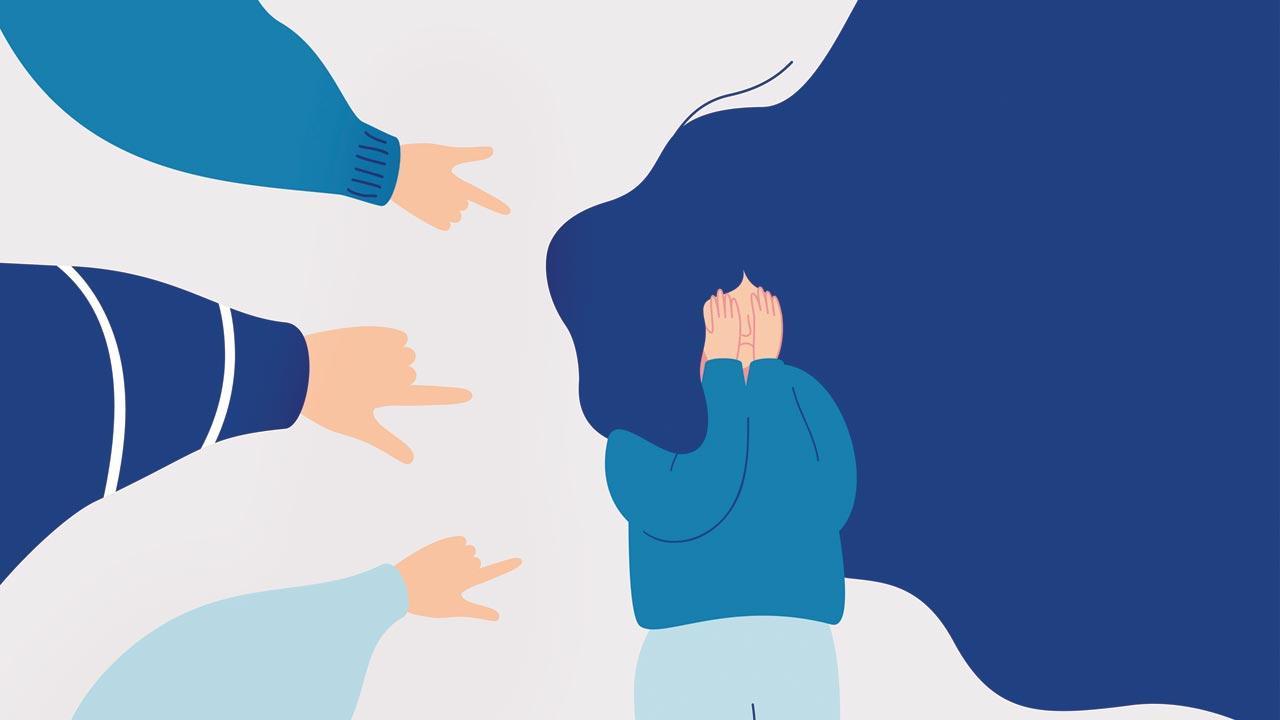In everything that you do and feel, patriarchy has a corresponding amount of shame and guilt to dump on you. Although daunting, untangling yourself from the toxic mess is not an impossible task

If guilt was ‘useless’, then what was it for? What purpose did it serve? Representation pic/Getty Images
This morning I feasted on light. After a series of either cloudy or soggy or foggy skies, today the Sun rose in all its mighty splendor. As I entered my study in my exercise wear (chaddi-bra) I felt the rays caress my brown skin. It made sense to me, suddenly, why last summer I'd seen so many women at the public swimming pool taking off their bikini tops. The thought seemed so lavish - sunning one's body in the naked outdoors and letting the warmth seep into one's bones.
ADVERTISEMENT
So much in contrast to back home, especially in Goa, where you are encouraged to cover yourself well to avoid getting tanned when you ride your scooty. I don't think I'll ever feel nostalgic about being told to cover my body in order to protect my skin from getting darker than it already was or to not go to the beach in the afternoon because there was too much sun. I do wish I had been better cautioned about wearing sunscreen. That was wisdom I had to acquire on my own, unlike all the shame that was, on the other hand, only too willingly passed down in the guise of unsolicited advice.
I have often wondered if there was a way to exorcise all the shame that was piled onto me by patriarchy. Shame about the way I looked, the color of my skin. Shame about how much I eat, or when I ate too little, or ate someone else's share by mistake, or dared to ask for more of something.
Shame because I dared to expose some part of my body that I shouldn't have, like my ankles, or my underarms. Shame because I stained my dress during a particularly messy period. Shame because I did not obey authority. Shame on account of my demeanour, because I did not seem humble enough, or virtuous enough, or laughed in the middle of a sermon.
Shame because I wore an audacious shade of black that didn't contrast enough with my skin, and so someone took it upon them to comment that they just couldn't see me. Shame because I was being openly teased by men as if I was a person with no feelings, or who did not deserve to be respected. Shame because I had been groped.
Shame because I fell. Shame because I failed Shame because I loved. Shame because my love was not returned. Shame because I survived. Shame because I am currently living amidst so much beauty.
The burden of having inherited so much shame through centuries of patriarchy is that when you aspire towards wholeness and begin the brave process of reuniting with your body, allowing yourself to feel and not take recourse to the coping mechanism that was numbness, you struggle to categorize your emotions. Because the toxicity inherent to shame has infested your body and soul, every feeling is tangled up with guilt and shame. To untangle feels like a monumental undertaking. After a point you begin to wonder, what are you without your shame?
I may have said this before, but I’ll repeat myself because maybe there is so much truth to this statement that it keeps resurfacing in my consciousness. A friend once told me that her dance instructor once told her this — Guilt is a useless emotion. I keep turning this declaration over and over in my head. You know like how when you’re bored or nervous and at a table and you take something strewn like the cap of a beer bottle or a used straw and keep twisting it and turning it and making all sorts of shapes. Fidgeting.
I’ve been fidgeting with this thought. It was delivered to my friend in French. And I don’t remember now if ‘useless’ was the right translation. But it made me think about the uses of emotions. And if guilt was ‘useless’, then what was it for? What purpose did it serve? Was it a part of the same ‘rod’ that Sara Ahmed speaks about when she constructs her metaphor for patriarchy?
One of the things I despised about how Catholicism was preached in church was the patriarchal focus on how we were all sinners. I found myself often rolling my eyes because it felt so defeating to have these constant reminders of our sinfulness as if with each mention, another kilo of shame was being added to your soul.
It always made me feel like we were being ‘kept’ in our place, especially if you ‘descended from Eve’. At some point, though, you decide you don’t want to carry the weight of everyone else’s sins. You just want to deal with your own fleshiness and your vulnerabilities, and this doesn’t make you less or more anything. It just makes you someone who acknowledges their fragility.
As we inch closer to the season of Lent, I’ve decided that this year I am committing to abstaining from shame and guilt. I want to know what it feels like to act in a manner that feels respectful to my well-being, to make choices from the safe space of my greater joy, and not in order to escape the wrath of a Male God.
Deliberating on the life and times of Everywoman, Rosalyn D’Mello is a reputable art critic and the author of A Handbook For My Lover. She tweets @RosaParx
Send your feedback to mailbag@mid-day.com
The views expressed in this column are the individual's and don't represent those of the paper
 Subscribe today by clicking the link and stay updated with the latest news!" Click here!
Subscribe today by clicking the link and stay updated with the latest news!" Click here!






